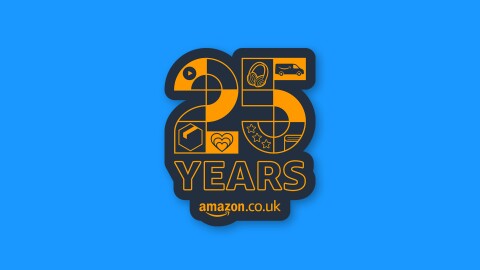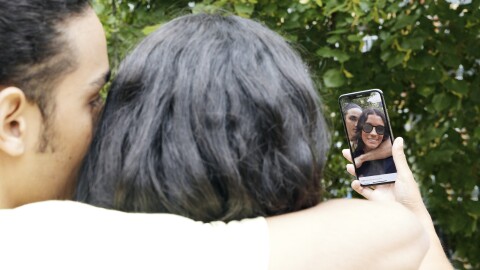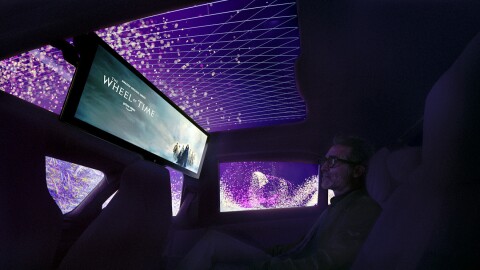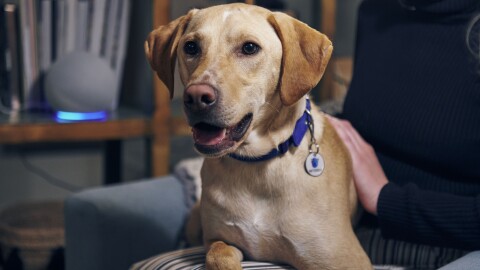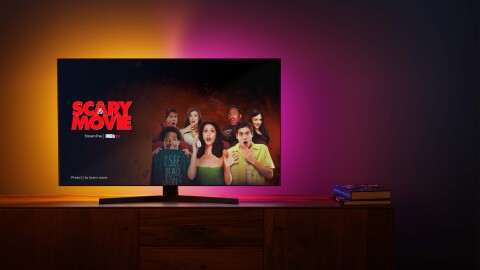“Alexa, how do I register as sight impaired?”
The collaboration will enable Alexa to provide information directly from the charity’s Sight Loss Advice Service. It is hoped the tool will help improve the accessibility of online information for more than two million people across the UK who are living with sight loss, after RNIB research showed that vision impairment remains a major barrier to accessing the internet.
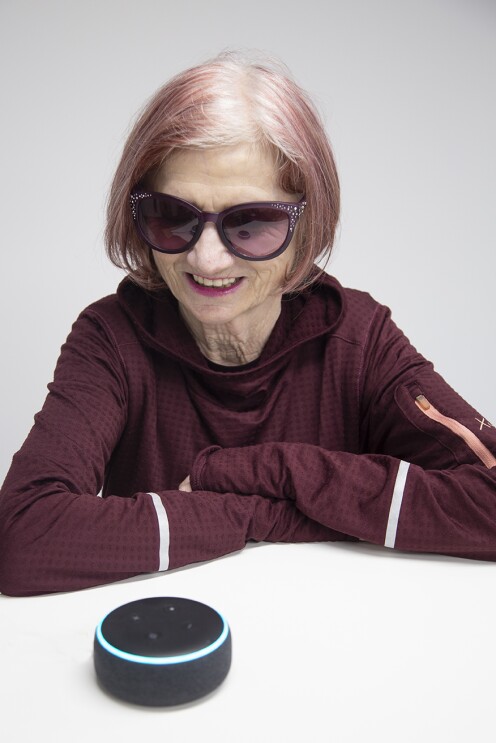
Living with sight loss
Dolly McLoughlin, aged 71, is a retired administrative assistant from Harrow. She started to lose her sight in her forties due to retinitis pigmentosa, which is a genetic disorder that causes gradual loss of vision. She finds it difficult to keep up to date with developments in technology and says researching on the internet is particularly challenging for her.
“While I was working, there was always someone there that could help, like the IT department, but since retiring it’s been difficult to keep up with how quickly technology changes”, says Dolly. “I can use emails and documents, but I find navigating the internet with a screen reader very difficult indeed. Websites are all designed differently, which makes it hard to find what I am looking for. I’m no good at looking up specific information or ordering things. I have to get someone to help me.
“Alexa is different. I can just ask her questions and she will tell me the answer. Listening to music, the radio and my audio books through Alexa is wonderful, but getting direct information – like a short biography of an author, or the synopsis of a play I’m interested in – is priceless. It’s fantastic that organisations like RNIB are starting to use it in this way and I hope more companies will follow.”
We've worked with @AmazonUK to provide information about living with sight loss through their voice assistant, Alexa.
— RNIB (@RNIB) January 24, 2020
Do you use @alexa99? https://t.co/5lsxOsLSnO pic.twitter.com/B6SCnAeJan
According to the RNIB, more than half of blind and partially sighted people (54 per cent) claim their sight loss is a barrier to using the internet, and nearly two thirds (61 per cent) report feeling unable to make the most of new technology, with many citing accessibility issues.
Top Tips and Information
As well as sight loss information, RNIB also offers practical tips and information on how to protect eyesight and how to support someone who is blind or partially sighted via Alexa.
David Clarke, Director of Services at RNIB, said: “Voice assistant technology is playing an ever-increasing role in transforming the lives of blind and partially sighted people. Members of our Connect Community tell us they often use voice assistants, like Alexa, to stay up-to-date with the latest news and information – and many say they find it easier to use than screen-based tech, like smart phones, tablets or computers.
“Voice assistants can enable independence, helping to break down accessibility barriers to a more inclusive society. By using this technology to increase the reach of our own resources, we are ensuring that people can immediately get essential information about sight conditions, their rights, and the support available, simply by asking out loud.”
This content is hosted by a third party (www.youtube.com).
To view the content, you need to consent to cookies by selecting Accept all in the popup banner. Or you can go to the site footer, select Cookie Preferences, and then select On under Functional Cookies, Performance Cookies and Advertising Cookies.
Madleen Mann, aged 38, lives in Gravesend, Kent, with her partner and three daughters aged from seven to 14. She’s totally blind and uses Echo devices throughout her home and the Alexa app on her phone to help her run her household.
Owning these devices has helped me to lead a more independent life. I don’t feel disabled – I feel enabled and empowered.





